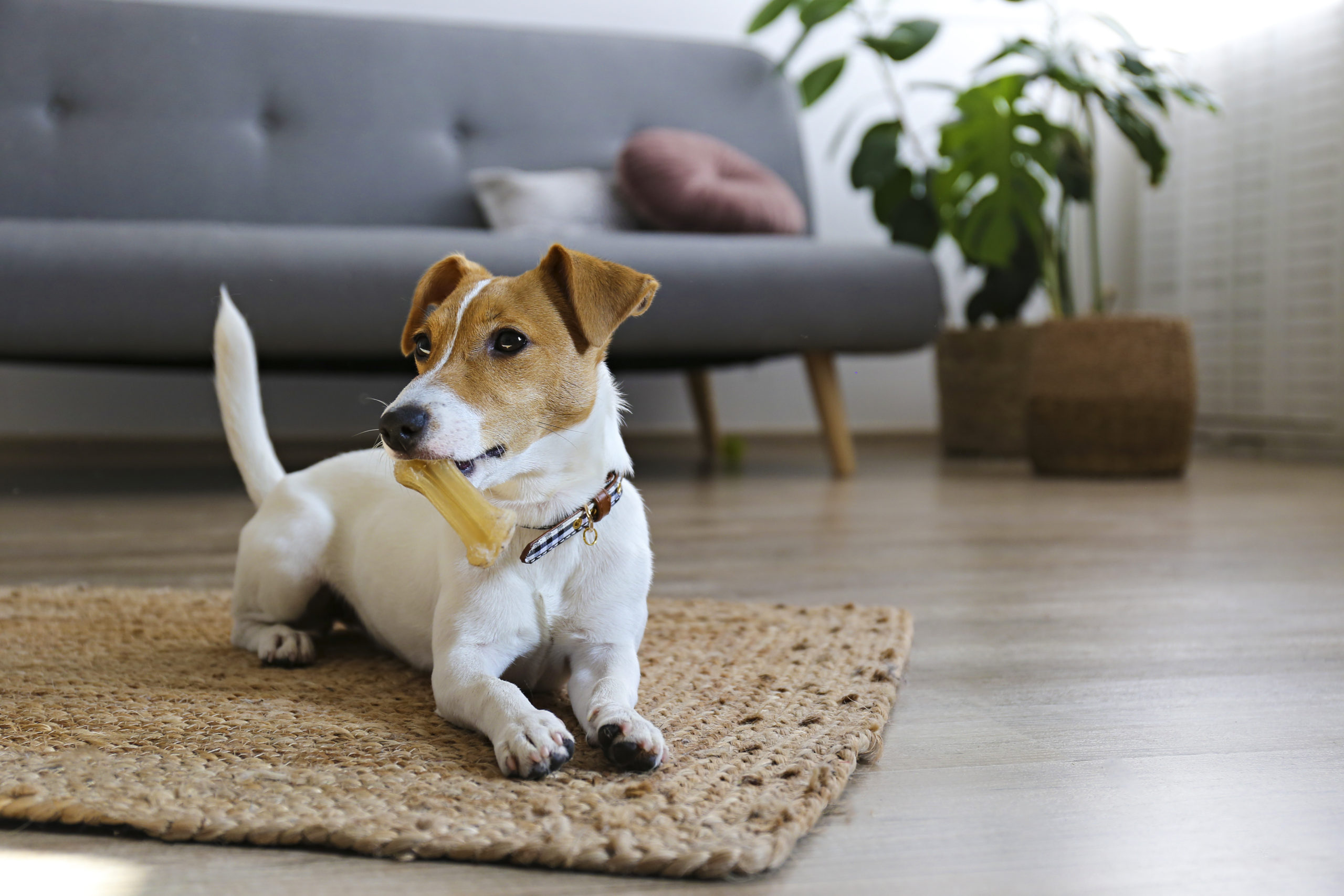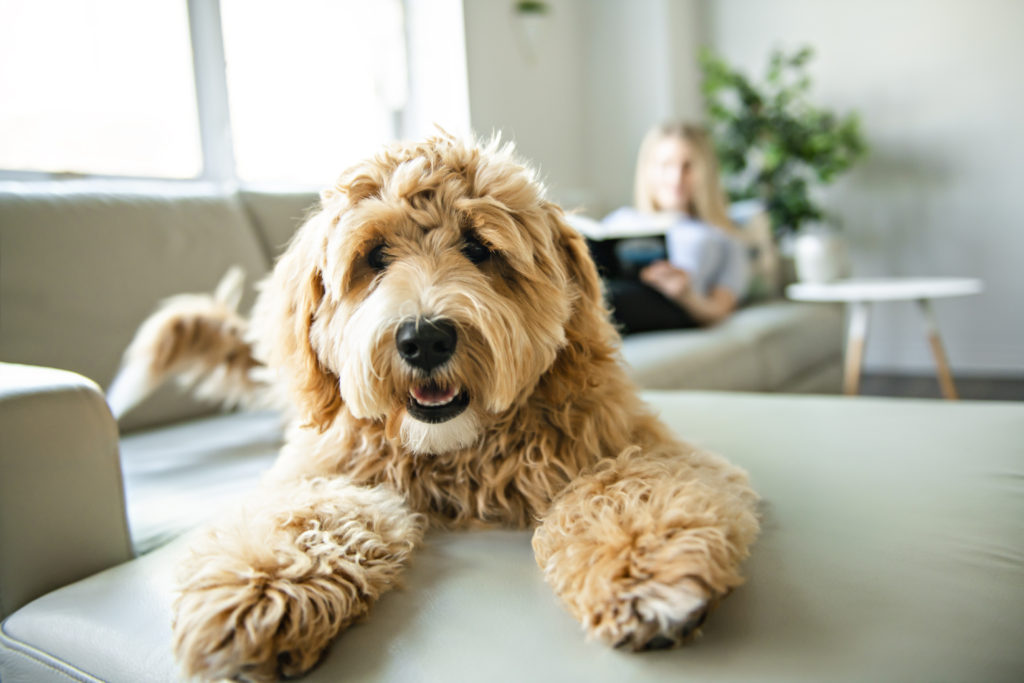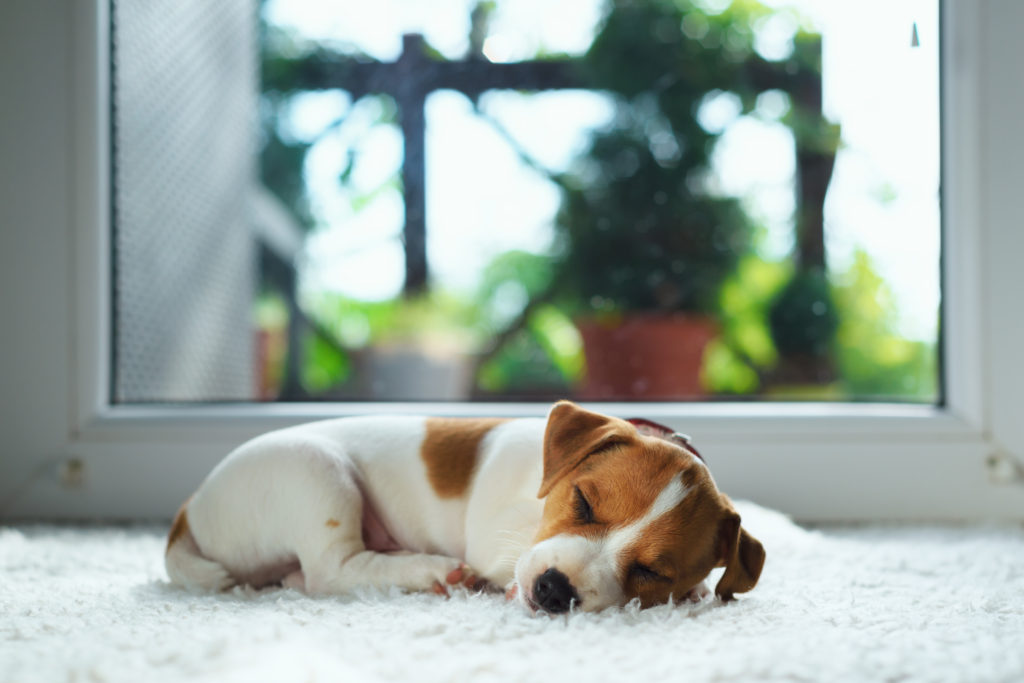
Pandemic Pups
If you didn’t welcome a new dog into the family in 2020, chances are someone you know (or 15 people you know) did. The Insurance Resource Council released a report in October 2020 stating that nearly 1/3 of Americans adopted a pet during the COVID-19 pandemic. That’s a massive number, but it makes sense! Being stuck at home with time to spare = the perfect opportunity to get a pup settled and trained.
That said, it’s still very easy for you, and your pup, to bite off more than you can chew! Especially once commuting to work is common again. Pet Shield is here to help you stay on top of your training, to set you and your new dog up for the best relationship ever. Here are our top tips for training your COVID pup!

Top Tips for Training Your Pup
- Start them young! It’s crucial to begin your training at the early stages of your dog’s life, or at least at your earliest opportunity. This is the best way to prevent behaviour problems, develop a strong relationship with your dog, and help your dog’s social skills.
- Choose your pup’s name wisely–certain names are actually better for training. Pro tip: try choosing a short name that ends in a strong ending they can hear clearly. This is likely why “Jack” and “Rover” have been common dog names in the past. First thing’s first, focus on teaching your pup to know its name and to come when called.
- Decide on rules, and stick to them. Training can be very confusing for your pup if the rules aren’t set in stone. This goes for house rules, and training rules. Are they allowed on the furniture? Are parts of the house off-limits? Are they not allowed to jump when new people are around? If possible, it’s best to establish the rules in the early days.
- Reward good behaviour! Though each of these points are important, this is the most important step of training. Rewards act as positive reinforcement, and persuade your dog to keep up the great work.
- Train in the moment–if your dog has done something bad, use your training technique immediately, so they understand which action was wrong. It’s important to make sure your dog has the correct association between their action and your feedback. Repetition will reinforce this.

Socializing Your Pup is Important
Socialization is crucial for healthy development, as it helps dogs get used to new situations. Easing your dog into new situations can help lower anxiety levels. Playing with other dogs will also help keep your pet happy and active, develop confidence, and give your pup the opportunity to meet their dog BFF! This can often be challenging for dogs who spend most of their time alone.
Dogs are very social animals–a socially distanced, stay-at-home world isn’t ideal for them. Until you feel comfortable being out and about with others, it’s helpful to try creating “mock” situations for the future. Take your dog for walks to get them out of the house. Hopefully there are chances to come across other dogs. Go for car rides, and occasionally take short trips in the kennel, so your dog can get used to these situations. Prepare for visits to the vet by gently handling your pup’s ears, tail, and paws so they’re less likely to be frightened by an examination. If you can, try to establish a routine for your dog that will occur after the pandemic. Ask yourself what things will look like for your dog, should you have to go back to the office. This way, you can best prepare yourself for the transition.
Additional Resources
- The City of Edmonton’s page discussing responsible pet ownership
- Bark Busters offers remote dog training anywhere in Canada
- The Government of Canada’s Animals and COVID-19 page discussed pet ownership during the pandemic
- The American Veterinary Medical Association offers advice on socializing dogs during COVID-19
- The American Kennel Club describes how to socialize your new puppy during times of social distancing